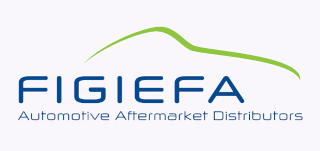Brussels, 9 May 2017
Broad coalition of automotive aftermarket operators and mobility-service providers gives powerful message to EU Institutions on the need for a robust legal framework to maintain consumer choice in the digital era
‘Creating a robust regulatory technical framework for an interoperable, standardised, secure and safe digital in-vehicle telematics platform to make the European Digital Economy for the automotive aftermarket and mobility services a reality’: this was the strong call from a broad stakeholder coalition to the European Institutions during a Policy Lunch, held in Brussels on 3 May. Only in this way can fair competition, innovation and entrepreneurship, and freedom of consumer choice be safeguarded, so that competitive business models can evolve to provide the benefits around the ‘connected car’ and the development of the digital economy.
The stakeholder coalition embraces the European associations representing vehicle dealers, authorised and independent workshops, periodic testing centres, independent publishers of technical information, manufacturers of garage test equipment, independent wholesalers of automotive replacement parts, the rental and leasing industry as well as the mobility clubs.
During the event, chaired by Ismail Ertug MEP, the stakeholder coalition demonstrated the importance of direct access to the vehicle, its data and resources to enable innovative and competitive digital products and services.
Today, competition starts in the vehicle with direct access to ‘full and fresh’ data. The quality of the data dictates the quality of the service. In the automotive aftermarket, operators and mobility-services providers need real-time access to today’s connected vehicle and its data. Currently, this data only goes via ‘closed’ telematics systems to the servers of the respective vehicle manufacturers, from where all other service providers are offered access to a reduced quality of data. This makes it impossible for all these other service providers to compete fairly and equally.
In this context, the key-note contribution of Joanna Szychowska, DG Grow Head of Automotive & Mobility Industries Unit, explained that the GEAR 2030 process is indeed now much broader than the previous CARS 2020 exercise, taking downstream value chains into account. Ms Szychowska assured participants that keeping the connected-mobility market as open and competitive as possible is a goal for the European Commission.
Nigel Goodall of Enterprise Holdings explained that the ‘connected customer’ of today requires smart, customised mobility services. For the rental and leasing industry, this means the capacity to offer flexible services on demand (e.g. a status check and hand-over of vehicles as part of short-term hire car clubs) and remote communication with the vehicle. For this, a direct, real-time connection to the vehicle is essential to allow smart fleet-management and digital mobility solutions.
Bernfried Coldewey from Germany’s ADAC Automobile Club gave a live demonstration of how an Open Telematics Platform could operate if direct access to the vehicle, its data and resources is ensured. The dashboard display of the car would show the choice of applications freely chosen by the consumer and displayed in their car. At present, the consumer has only a ‘monopolistic choice’ of applications i.e. chosen by the vehicle manufacturer. In the event of a breakdown, a safe remote connection from ADAC with the vehicle would be able to detect the fault – and in some cases even remedy remotely – to allow the driver to continue his journey. Each data-transmission asks for authorisation, granting the user full control of their data. Bernfried Coldewey concluded that this service would not be possible with the vehicle manufacturers’ so-called ‘Extended Vehicle’, currently proposed by the vehicle manufacturers as the solution for third-party data access.
The Open Interoperable Telematics Platform would, of course, be as secure, if not more so, than the current system that exchanges data with the vehicle manufacturers’ servers. Markus Bartsch of TÜViT presented the robust and proven security case for third-party access to standardised and interoperable platforms, to clearly support this important point.
Professor Michael Matoni from the Technical University of Cologne presented the first results of a study on the effects of the ‘Extended Vehicle’ on the automotive aftermarket between now and 2030. For the current 1.9 million workshop-employees, between 566.000 and 833.000 could lose their job in the many SMEs that provide valuable customer services, especially in rural areas.
Speakers stressed that safe and secure technical solutions clearly exist to provide an interoperable in-vehicle telematics platform, but that EU legislation is needed to ensure that new innovative and competitive data-based business models can develop to deliver consumer choice and innovation in the digital era.
